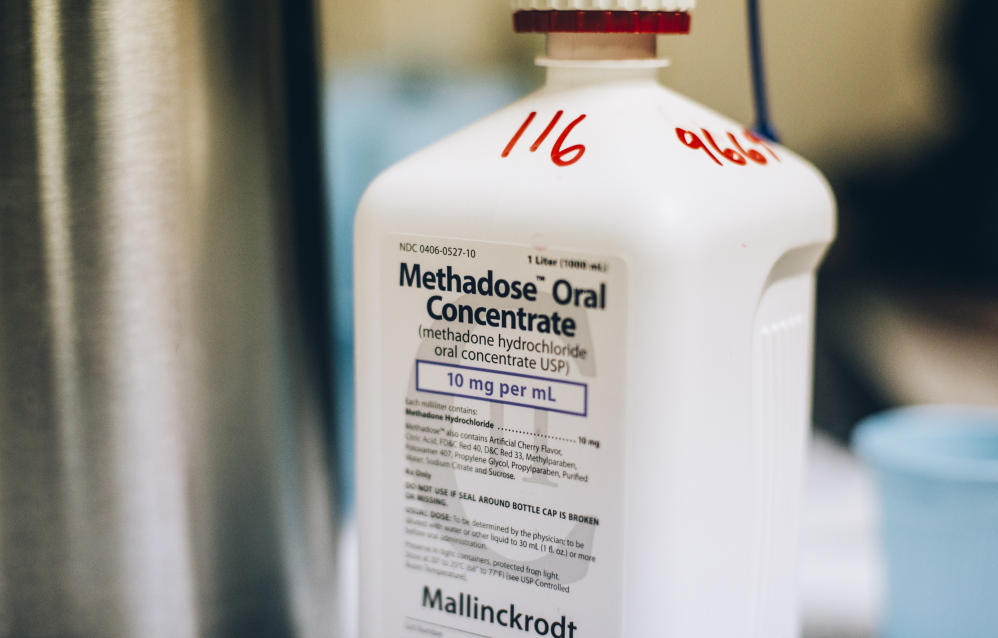Methadone treatment for opiate addiction has been controversial since the medical community started dosing heroin addicts 50 years ago.
The synthetic opioid blocks an addict’s cravings and prevents withdrawal symptoms without debilitation. Successful methadone clients can have healthy family relationships, hold down jobs and contribute to their communities in ways that would be unimaginable under the roller-coaster demands of feeding a drug habit.
But these success stories tend to be invisible, so methadone becomes a constant target.
The latest attack comes from the LePage administration, which is trying to make Maine the first state to transfer all of its Medicaid patients who receive drug replacement therapy from methadone to a newer alternative known by the trade name of Suboxone. The switch could save the state as much as $750,000 a year, said Health and Human Services Commissioner Mary Mayhew. But that would be a short-sighted way to save money.
With Maine in the middle of an epidemic of hard-drug use, the state should use every available tool in law enforcement and treatment to reduce the supply of and demand for opiates. Methadone is a proven treatment with a track record of success that should not be rejected too easily. Switching to a drug that clinicians say is less effective for the most severely addicted patients could make spending that extra $750,000 look like a bargain.
The controversy over methadone often centers on its unique distribution system. Unlike most medications, including Suboxone, methadone is delivered in dedicated clinics, in most cases requiring individual daily visits, instead of occasional trips to a pharmacy. This was developed with the special needs of addicts in mind. Many of them lead disordered lives and can’t handle the structure of taking medication every day on their own. In many cases, drug addiction is not their only serious problem. Illegal drug use involves living in close contact with the criminal world, and the clients can’t be trusted to take doses home.
Controlling cravings and preventing withdrawal gives even the most heavily addicted clients some breathing room to repair other aspects of their lives. At the very least, it takes away the need to come up with $100 or more every day, usually through petty crime.
Suboxone is a similar drug that can be administered by doctors. But studies have shown that it’s less effective than methadone for patients who are longtime addicts and have a high tolerance for opiates. While some patients can function well on Suboxone, others relapse more frequently than they would on methadone.
If this were just a treatment question, it would be left up to the medical community to determine the appropriate way to treat each patient. But when illegal drugs are involved, it becomes a political question, and politicians are always looking to send a message.
The message should be that we are going to do what works. That means education to prevent people from getting hooked on drugs, enforcement to make the cost of dealing them too high and treatment for those who are addicted so they can reclaim their lives.
Methadone has been proven to work – not for everyone, but for many. It would be a mistake to hamstring a successful program now, when we need it most.
Copy the Story LinkSend questions/comments to the editors.



Success. Please wait for the page to reload. If the page does not reload within 5 seconds, please refresh the page.
Enter your email and password to access comments.
Hi, to comment on stories you must . This profile is in addition to your subscription and website login.
Already have a commenting profile? .
Invalid username/password.
Please check your email to confirm and complete your registration.
Only subscribers are eligible to post comments. Please subscribe or login first for digital access. Here’s why.
Use the form below to reset your password. When you've submitted your account email, we will send an email with a reset code.